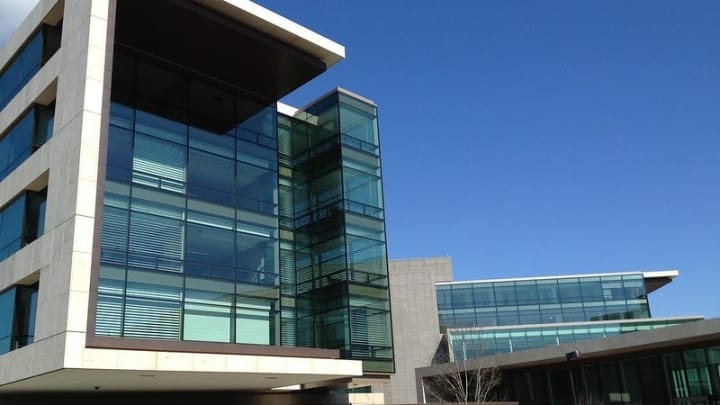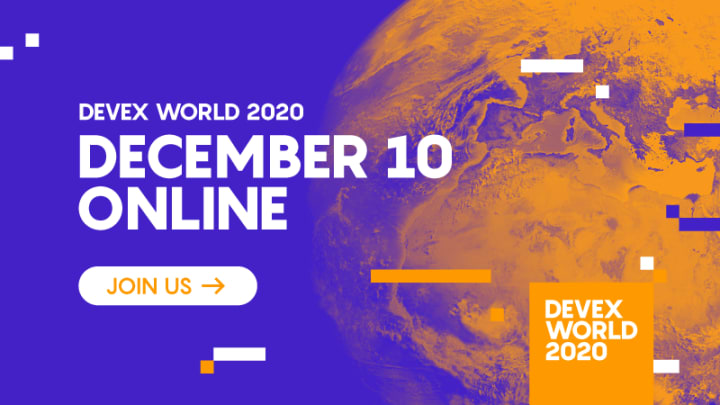Gates Foundation COVID-19 commitment reaches $1.75B with latest pledge

SACRAMENTO, Calif. — The world is “not on track” for an equitable COVID-19 vaccine rollout, according to Mark Suzman, CEO of the Bill & Melinda Gates Foundation.
Despite the unprecedented pace of progress in research and development for COVID-19 vaccines, a number of barriers stand in the way of getting these scientific breakthroughs to everyone who needs them, Suzman told Raj Kumar, president and editor-in-chief at Devex, in an interview for Devex World.
Join the Gates Foundation CEO at Devex World
Full access to the day’s interactive program is exclusive to Devex Pro and Pro Funding members. Dec 10. Claim your ticket.
The Gates Foundation announced Wednesday that it will commit an additional $250 million to support research and development — as well as equitable delivery — of COVID-19 tests, vaccines, and treatments.
This latest pledge brings the Gates Foundation’s total commitments to the COVID-19 response to $1.75 billion — but philanthropy is not a long-term solution, Suzman said.
“We’re a stopgap, we’re an accelerator, we’re a catalyst,” he said, adding that philanthropy can only offer a fraction of the financing that will be needed to ensure that COVID-19 innovations are delivered at scale in low-resource settings.
The U.S. Food and Drug Administration is considering emergency use authorization for COVID-19 vaccine candidates developed by Pfizer and Moderna. Both of these vaccines require cold-chain storage, with Pfizer requiring ultracold conditions. But the Ebola vaccine faced similar challenges, which were overcome in part by superinsulated storage devices that keep vaccines within their required temperature ranges, even in low-resource settings.
“It’s challenging but not impossible,” Suzman said.
For COVID-19 tests, vaccines, and treatments to be delivered at scale in low- and middle-income countries, there is a need for more research and development to lower costs and ensure these tools work in different settings, he added.
“Our holy grail is cheap and effective and ideally single-dose,” Suzman said during a press call with reporters Wednesday.
Suzman emphasized the need for improvements to logistical infrastructure and supply chains by preparing health workers and clinics to administer COVID-19 vaccines, as well as diagnostics and therapeutics.
“And on top of that, we need to deal with vaccine acceptance, potential vaccine hesitancy, how the public will approach this,” he said.
The Gates Foundation saw the importance of community trust in vaccination through its work on polio, Suzman said.
“And certainly in the current environment, where there’s lots of vaccine misinformation, it’s more important than ever,” he added.
In Nigeria, the last African country to be certified polio-free, local religious leaders were key allies in addressing conspiracy theories that vaccines were being used for sterilization, Suzman said.
Get development’s most important headlines in your inbox every day.
Thanks for subscribing!
The equitable distribution of COVID-19 vaccines is not a matter of charity, but rather of national and global self-interest, he added.
Suzman referenced a report commissioned by the Gates Foundation highlighting the return on investment that 10 major economies could see by contributing to the Access to COVID-19 Tools Accelerator.
“It demonstrates very clearly how much economic benefit there will be to those countries if they invest in global machinery to help address COVID,” he told Devex.
These economies could see $153 billion by next year, rising to $466 billion by 2025, if COVID-19 vaccine distribution is equitable, according to the report.
Suzman stressed the need for an approach that supports the equitable distribution of COVID-19 vaccines, as well as preparation for future pandemics and longer-term infrastructure for primary and secondary health.
“That’s challenging but I think eminently doable and is a top priority,” he said.
Suzman also emphasized the important role of governments, as well as multilateral organizations like Gavi, the Vaccine Alliance; the World Health Organization; and the Coalition for Epidemic Preparedness Innovations — all heavily backed by the Gates Foundation — in the COVID-19 response and long-term recovery.
Each of them “remain under-resourced relative to the need,” he said, noting in the call with reporters that some of these partners may be considered for a share of the $250 million commitment.
Speaking with Devex, Suzman highlighted the important role of the Africa Centres for Disease Control and Prevention — which was launched in January 2017 after the Ebola outbreak, with support from the Gates Foundation and other donors — in the COVID-19 response.
“How do we strengthen it, build on it, so it can provide technical support, early warning systems?” he said. “That’s not just an African public good, but will be a global public good.”

Printing articles to share with others is a breach of our terms and conditions and copyright policy. Please use the sharing options on the left side of the article. Devex Pro subscribers may share up to 10 articles per month using the Pro share tool ( ).
*** This article has been archived for your research. The original version from devex.com can be found here ***


